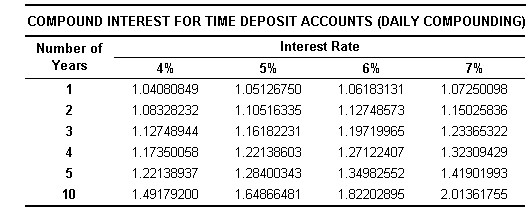Use the discriminant to determine whether the following equations have solutions that are: two different rational solutions; two different irrational solutions; exactly one rational solution; or two different imaginary solutions.6 + 6z2 = 7z
A. Two different rational solutions
B. Exactly one rational solution
C. Two different imaginary solutions
D. Two different irrational solutions
Answer: C
Mathematics
You might also like to view...
Factor the trinomial, or state that the trinomial is prime.x2 - x - 40
A. prime B. (x + 5)(x - 8) C. (x - 5)(x + 8) D. (x - 40)(x + 1)
Mathematics
Find the compound amount for the certificate of deposit. Assume daily compounding using the following table. Round to the nearest cent. Amount: $4289Rate: 4%Years: 4
Amount: $4289Rate: 4%Years: 4
A. $6398.30 B. $5238.52 C. $5507.09 D. $5033.14
Mathematics
Simplify the algebraic expression.10x + 7(y - 3) + 9
A. 3xy - 12 B. 10x + 7y - 12 C. 17xy - 30 D. 10x + 7y + 30
Mathematics
Complete the identity. = ?
= ?
A. 2 sin (7?) sin (3?) B. 2 cos (7?) sin (3?) C. tan (7?) D. 2 sin (14?)
Mathematics